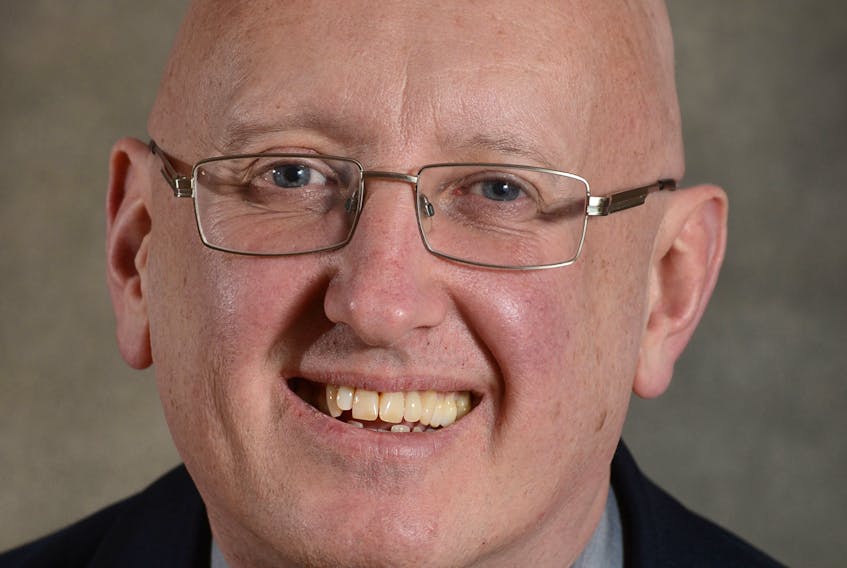Last week, as she has done for the past 67 years of her reign, Queen Elizabeth II gave her annual Christmas Message, broadcast throughout the United Kingdom and all 52 member states of the Commonwealth.
(Editor’s Note: Second of two parts.)
The broadcasting of such a message of Christmas greetings was inaugurated by the Queen’s grandfather, George V, in 1932, when his voice was carried by radio waves throughout the then Commonwealth dominions and Empire. By 1957 his granddaughter was continuing his tradition via the medium of television.
To monarchists, the Queen’s annual Christmas Day address is part of the Christmas festivities, and a homey reminder of the ties of family and faith, generosity, kindness and sharing that speak to the best values of the human condition, and the principles upon which the modern Commonwealth is founded.
As mentioned in my last column (‘Queen unlikely to retire,’ Cape Breton Post, Dec. 11) , however, in the lead-up to the Queen’s 2019 Christmas message there was much speculation in the media, both in Britain and Canada, that this year’s message might be one of the last she would ever give. There were many media reports to the effect that the Queen would retire from public duties in 2021, at the time she turns 95 years of age. There was speculation that Charles, Prince of Wales, would then take on the Queen’s duties as Prince Regent, becoming King in all but name.
Please don’t hold your breath waiting for these momentous events to transpire. As I wrote previously, while the Queen has been delegating more of her royal duties to her eldest son, she will neither retire, nor abdicate the throne. As she long ago said on the occasion of her 21st birthday in 1947, “I declare before you all that my whole life whether it be long or short shall be devoted to your service and the service of our great imperial family.” Only in death will her service to her now Commonwealth peoples come to an end.
That is, unless people in Britain, or Canada, or the other Commonwealth realms, those countries recognizing the British monarch as their head of state, decide to abolish the monarchy prior to or at the point of the Queen’s death. If the monarchy in Canada was to terminate at the time of the Queen’s passing, we would never have a King Charles III to reign over us.
This is the desire of many republicans in Britain, Canada, and elsewhere in the Commonwealth realms who view the institution of the monarchy as an antiquated and embarrassing relic of the past, a reminder of the British Empire and all its evils, and a symbol of invidious discrimination. In Canada, no Canadian can ever aspire to become Canada’s head of state because that position is guaranteed, by law, to reside in the hands of the senior-most member of the House of Windsor, Britain’s royal family.
Only in death will her service to her now Commonwealth peoples come to an end.
So, there has long been talk amongst Canadian republicans, those who wish to abolish the monarchy within Canada, to do just that. The group Citizens for a Canadian Republic, the leading republican organization in this country has called upon the federal government to hold a referendum on abolishing the monarchy in this country and, once it passes, to establish a made-in-Canada head of state position, with an eminent Canadian finally in the highest role.
Sounds easy but, as I always tell my students, beware people selling simple solutions to complex problems. Any such change to the status of the monarchy in Canada requires a constitutional amendment having the support of the federal government and parliament and the unanimous support of every provincial government and legislative assembly. That is a tall to insurmountable hurdle to overcome.
And even to get to the formal constitutional discussions with first ministers first requires the holding of a national referendum on the issue of monarchy abolition, national referendums require the approval of the prime minister and cabinet. We just had a national election. Did any party leader ever say a word about holding such a referendum if they were to be elected prime minister?
So also do not hold your breath waiting for such a referendum. The monarchy will endure in this country and in due course we will witness the advent of the reign of King Charles III.
Dr. David Johnson, Ph.D., teaches political science at Cape Breton University. He can be reached at [email protected]. He is also the author of ‘Battle Royal: Monarchists vs. Republicans and the Crown of Canada.’









